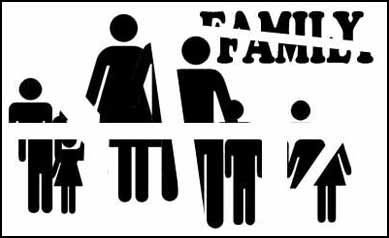Healthy communication: A cornerstone for viable solution
“What lies behind us and what lies before us are tiny matters compared to what lies within us” Oliver Wendell Holmes
Communication is the activity or process of expressing ideas and feelings or of giving people information; it is through different channels of communication that human beings create conflicts and resolutions, they can unite or disintegrate, they can reconcile or worsen the matter.
Before I proceed to the main subject, I need to refresh you with a couple of stories linked to how communication shapes the outcome?
Once upon a time, there were a husband and wife who lived in the Eritrean countryside. They were in need of a donkey for fetching water, firewood and transport other items.
The husband said: Edg’t miqrib ig’l nizzabe tu,(we are going to purchase a pregnant donkey.)
The excited wife replied, Mashalah, ana ma etsa’an diba, (my pleasure, even I can ride that donkey)
The Husband was angry: Ana Anja, dibba edg’t ye la miqrib! (It is me Anja (his nick name) how dare you plan to ride on my pregnant donkey!
Then the angry husband was angry struck the wife with stick and she died.
The tragic consequences are a result of a simple misunderstanding. The husband and wife didn’t wait until they own the donkey to argue about it. Secondly, the wife just innocently expressed her wish to ride on the donkey–she never meant it to harm the pregnant donkey. The husband was very sympathetic with the pregnant donkey and he didn’t want to ride or load any items on it until it gives birth.
“Seek first to understand then to be understood” Stephen R. Covey
In my teens I used to help my uncle plough his field. It was summer and many farmers in our village were busy getting ready for a good cultivation. I was not skilled enough to lead the oxen in an efficient and smooth way. My uncle tied all the traditional farming tools with the oxen and handed me the irbana, a farming tool which is made of wood, consists of Mahresha, in the bottom end and a projection to grip it in the top end. I started the trip…hon……ohonne…kib…..la’al….
The two oxen were named adelway and janay. Adelway was so stubborn to pull forward; consequently, I was obliged to hit it through my shinkra, a thin long stick used to beat the oxen whenever they show sluggish movement. However, this didn’t help and I continued beating adelway severely until its thighs were swollen. My uncle was not far away. He was tilling his own plot of land but he was a watchdog for any step I had been taking. He suddenly came to monitor how the process is going on from my side; he was shocked when he saw the traces of the stick boldly swollen in the thighs of adelway. He angrily shouted: godeg dibom,nin ak’n ku godena tewwali Keren kukh feri, oh, may you never plough again; if this is the way you farm, go to your Keren and disappear from my sight. I was disappointed and left. We both lost; because I communicated with adelway with the stick-for a positive outcome, but that didn’t help or force it to be loyal. My uncle couldn’t tolerate my deeds and he failed to train me well-until I master the technique so that both of us can win. The product of the entire unwise communication was that my uncle ended up tilling all the land on his own—an unnecessary extra work.
But my point is not to show that our people are more sympathetic to their animals and their children; it is about how a proper communication would significantly influence the outcome of a solution for our current political turmoil.
Communication can lead to chaos and violence depending on how it is conducted. It leads to mutual respect, reconciliation and unity when it is used in a wise manner. But how many of us are conscious about communication psychology? I guess only a few. The evidence of this failure in applying the principle of “seek first to understand and then to be understood” is evident within our political culture. We have many opposition parties and elite asserting their rights, insisting on recognition, demanding a seat at the table and piece of the pie without being very effective. Effectiveness does not depend solely on how much effort we expend, but on whether or not the effort we expend is right.
Opposition members criticize and attack and they are defensive and protective of their own position, but they are faultfinders when it comes to others. Only few of us are blessed with the strategy of empathic listening to others. The key towards success and interpersonal communication is: seek first to understand then to be understood. When we listen with empathy to another person, we give that person comfort. After that comfort is achieved, you can then focus on solving problem; it takes time, but it doesn’t take anywhere near as much as it takes to correct misunderstandings. As we learn to listen to others people, we discover tremendous differences in perceptions. You can also begin to appreciate the impact that these differences can have as people try to work together in an interdependent situation.
Now with all our differences we are trying to work together. So how do we do it? How do we transcend the limits of our individual perceptions so that we can communicate and cooperate in dealing with issues and come up with solution?
The answer is: we have to cure ourselves with communication psychology before the day of the 2010 National Conference is due. A truly humble and wise person recognizes his own perceptual limitations and appreciates interaction with the hearts and minds of others. That person values the differences because those differences add to his knowledge and his understanding of the reality. When we are left to our own experiences, we constantly suffer from shortage of data. It is not what others do or even our own mistakes that hurt us most; it is our response to those things that does. Chasing after a poisonous snake that bit us will only drive the poison throughout our body system. It is far better to take measures immediately to get the poison out. Our response to any mistake affects the quality of the next moment—it is important to admit and correct our mistakes so that they have no power over the next step and we are empowered again.
We need to remind ourselves just how much we share: common hopes, common dreams, and a bond that will not break.
The next step that deserves more emphasis is which issues should be given priority to resolve the burden of our problem? Shall we keep on repeating complains and pains or shift our strategy of communication to find solutions to those problems? I think we better focus on how to reach at a comprehensive solution, constant monotonous behavior and tales rooted in old grudges leads to boredom. If not all, I would like to appreciate some Eritreans who are promoting a healthy communication and genuinely focusing in the search for solutions. I am thrilled to Amanuel Hidrat’s Awate episodes under the topic: Nature abhors vacuum: The search for veridical solution. Amanuel presented alternative solutions of good governance for the future Eritrea. Mejlis Ibrahim Mukhtar in the Eritrean Covenant also enhanced a healthy communication approach; it said, ‘these are our problem…these are the evidences and hence let us discuss.’ The Covenant is an important document that promotes transparent reconciliation. My due respect and reverence goes to Ustaz Omer Jabir and Dr. Bereket Habtesellassie; I cannot add anything to what the good fathers said.
To attain a feasible solution I urge all the dedicated compatriots to prepare themselves to facilitate respectful and genuine communication skills for the forthcoming Eritrean Conference. Our mission should be to empower the people by increasing our dedication in order to promote understanding and develop an atmosphere of transparency. We are impatiently waiting for solutions that would go beyond compromise. Compromise means 1+1=1 1/2. Give and take; it is a sort of communication which is not defensive, protective, angry or manipulative; it is honest, genuine and respectful. But it is not creative or synergetic. Synergy means 1+1 may equals to 8, 16 or even 1000. The synergistic position of high trust produces solutions better than any originally proposed ideas.
Finally, in order to win the trust and positively influence our people, we have to be a light, not a judge. Be a model and not a critic. Be part of the solution and not part of the problem.
I have a dream that I wish would be realized in the Eritrean Conference—all Eritreans embracing one another—a day of smiles and thanks….of decorum and pageantry. Do you think that my dream would be realized?
May God Help Us




Awate Forum